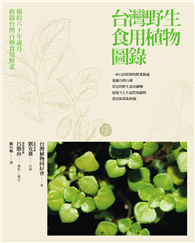| FindBook |
有 1 項符合
Contemporary Peruvian Cinema: History, Identity and Violence on Screen的圖書 |
 |
Contemporary Peruvian Cinema: History, Identity and Violence on Screen 作者:Barrow 出版社:Tauris Academic Studies 出版日期:2018-05-30 語言:英文 規格:精裝 / 14 x 21.6 x 2.5 cm / 普通級 |
| 圖書館借閱 |
| 國家圖書館 | 全國圖書書目資訊網 | 國立公共資訊圖書館 | 電子書服務平台 | MetaCat 跨館整合查詢 |
| 臺北市立圖書館 | 新北市立圖書館 | 基隆市公共圖書館 | 桃園市立圖書館 | 新竹縣公共圖書館 |
| 苗栗縣立圖書館 | 臺中市立圖書館 | 彰化縣公共圖書館 | 南投縣文化局 | 雲林縣公共圖書館 |
| 嘉義縣圖書館 | 臺南市立圖書館 | 高雄市立圖書館 | 屏東縣公共圖書館 | 宜蘭縣公共圖書館 |
| 花蓮縣文化局 | 臺東縣文化處 |
|
|
圖書介紹 - 資料來源:博客來 評分:
圖書名稱:Contemporary Peruvian Cinema: History, Identity and Violence on Screen
內容簡介
The political violence erupting near the end of the 20th century between the Peruvian state and communist militant group Sendero Luminoso, or ’Shining Path’, left an indelible mark on the country that is still evident today. This study focuses on representations of the guerrilla group on screen, and what this can tell us about the relationship between state, cinema and identity in Peru. The book provides in-depth analyses of the pivotal films from the 1980s through to the present day, that interpret the landmark events, characters and consequences that threatened to destabilise the nation. Setting the films in the context of a time of turbulent transition for both Peruvian society and also cinema – addressing developments in film policy and production – it reveals the attempts by creatives to reflect, shape, define and contest the Peruvian national identity of a fractured population. By addressing important themes such as identity and memory, politics and policy, and cultural responses to terrorism, chapters not only explore the local perception of the nation, but also highlight links to other cinematic movements in Latin America as well as global issues. Featuring the powerful work of filmmakers such as Francisco Lombardi, Claudia Llosa, Fabrizio Aguilar and Josué Méndez, Sarah Barrow’s astute investigation of the growing success and political importance of the industry’s output trace the complexities of modern Peruvian history.
|











